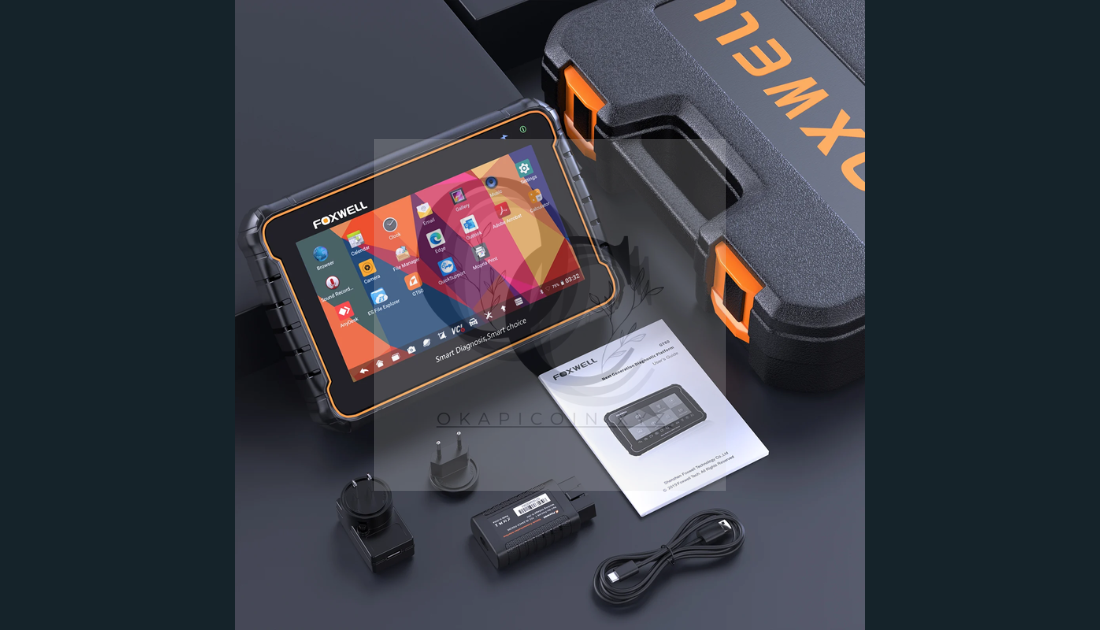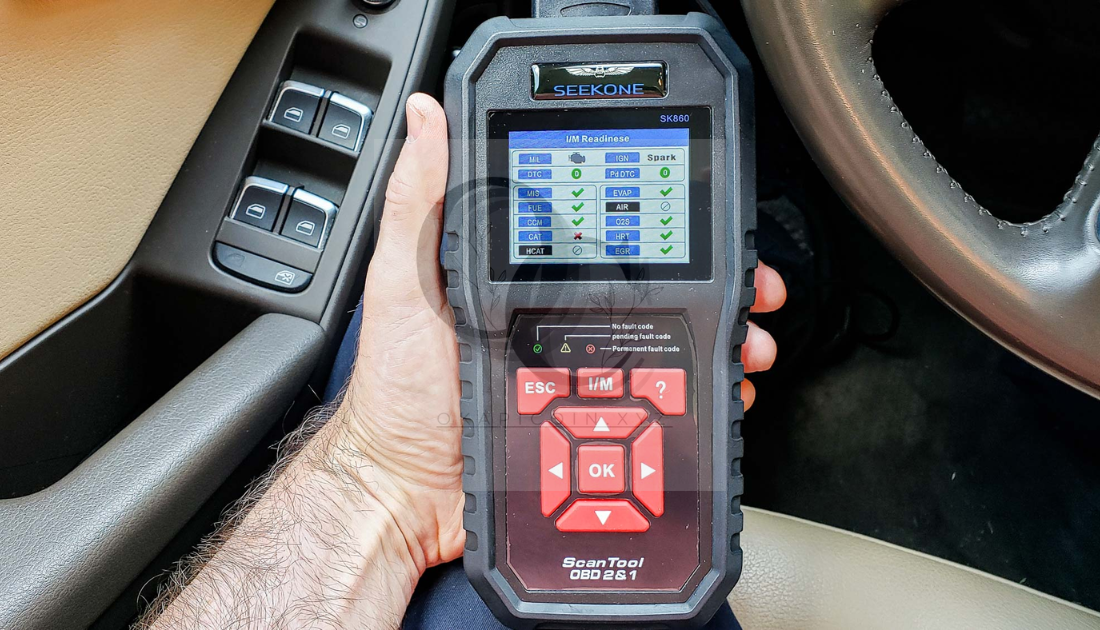Blog
Professional Auto Diagnostic Equipment: A Game Changer for Car Maintenance
In the modern era of automotive technology, keeping your vehicle in top condition requires more than just routine maintenance. Professional auto diagnostic equipment has revolutionized the way technicians and car enthusiasts identify and fix issues. These tools provide accurate insights into your car’s performance, helping you maintain its longevity and efficiency. Whether you are a professional mechanic or an avid DIYer, understanding the benefits and features of diagnostic equipment can transform the way you care for your vehicle.
What is Professional Auto Diagnostic Equipment?
Professional auto diagnostic equipment refers to specialized tools designed to assess and troubleshoot problems in a vehicle’s systems. From identifying engine issues to analyzing electronic components, these devices offer a comprehensive view of your car’s health.
Unlike basic diagnostic tools, professional-grade equipment comes with advanced features, such as real-time data monitoring, code reading, and system resetting. This makes it invaluable for anyone seeking precise and efficient vehicle diagnostics.
Why Invest in Professional Auto Diagnostic Equipment?
Investing in professional auto diagnostic equipment offers numerous benefits. First and foremost, it saves time. Instead of guessing what might be wrong, these tools provide specific error codes and detailed information about the issue.
Additionally, they reduce costs in the long run. Identifying problems early prevents further damage, which could lead to expensive repairs. For mechanics, this equipment enhances efficiency, enabling them to handle more vehicles and increase customer satisfaction.
Moreover, these tools improve accuracy. With professional diagnostic equipment, you can pinpoint the exact problem without relying on trial and error. This precision ensures that repairs address the root cause, not just the symptoms.
Finally, using diagnostic equipment helps maintain the value of your vehicle. Regular diagnostics ensure that every component runs smoothly, preserving the car’s overall condition.
Key Features of Professional Auto Diagnostic Equipment
Modern diagnostic tools come with a variety of features tailored to different needs. The most critical function is the ability to read and interpret On-Board Diagnostics (OBD) codes. These codes highlight specific issues in the car’s systems, such as the engine, transmission, or brakes.
Another essential feature is live data streaming. This allows users to monitor real-time performance metrics, making it easier to detect irregularities during operation. Advanced models also offer graphing capabilities for a more detailed analysis.
System-wide scanning is another valuable feature. High-end diagnostic tools can assess multiple systems simultaneously, including the air conditioning, ABS, and airbag systems. This all-encompassing approach ensures no problem goes unnoticed.
Additionally, some diagnostic equipment includes wireless connectivity and app integration. These features allow you to access diagnostic results on your smartphone or tablet, making the process more convenient.
How to Choose the Right Diagnostic Equipment
When selecting professional auto diagnostic equipment, consider several factors to ensure you make the right choice. Start by identifying your needs. Are you a professional mechanic handling multiple vehicles daily, or a car owner maintaining one vehicle? Your requirements will determine the type of tool you need.
Next, look for compatibility. Not all diagnostic tools work with every vehicle. Check the supported makes and models to ensure the device will function with your car.
Ease of use is another crucial factor. Some professional diagnostic tools come with complex interfaces, while others are user-friendly. Choose a tool that matches your skill level to avoid unnecessary complications.
Lastly, consider additional features such as software updates and customer support. A device with regular updates stays compatible with newer car models, while responsive customer support ensures you can resolve issues quickly.
Popular Types of Professional Auto Diagnostic Equipment
There are several types of diagnostic equipment available, each catering to different needs. Handheld OBD scanners are compact and easy to use, making them ideal for beginners. These devices plug directly into the car’s OBD port and display error codes on a small screen.
For more advanced users, tablet-style diagnostic tools offer enhanced features. These devices often include touchscreen interfaces, Wi-Fi connectivity, and extensive diagnostic capabilities.
Professional-grade diagnostic computers are the most sophisticated option. These machines are designed for workshops and garages, offering unparalleled functionality and performance. They can diagnose issues across multiple vehicles simultaneously, making them perfect for high-volume environments.

Maintenance Tips for Diagnostic Equipment
To ensure your professional auto diagnostic equipment remains reliable, regular maintenance is essential. Keep the device clean and store it in a protective case when not in use. This prevents damage from dust, moisture, or accidental impacts.
Regularly update the device’s software. Updates not only add compatibility with newer vehicles but also improve performance and accuracy. Most manufacturers provide updates through their websites or dedicated apps.
Avoid exposing the equipment to extreme temperatures. Excessive heat or cold can affect the internal components, reducing its lifespan. Always store it in a controlled environment to maintain its functionality.
Lastly, handle the device with care. Avoid using excessive force when connecting it to your vehicle’s OBD port, as this could damage both the tool and the car’s diagnostic system.
How Professional Diagnostic Equipment Benefits DIY Enthusiasts
For DIY car enthusiasts, professional auto diagnostic equipment opens up a world of possibilities. With these tools, you can perform in-depth diagnostics without relying on a mechanic. This not only saves money but also empowers you to learn more about your vehicle.
Using diagnostic equipment also ensures you can prepare for repairs effectively. By understanding the exact issue beforehand, you can order the right parts and tools, streamlining the repair process.
Additionally, professional-grade tools provide detailed explanations for error codes. This feature is invaluable for beginners who may not be familiar with technical terms. It bridges the gap between hobbyists and professionals, making car maintenance more accessible.
Professional Diagnostic Equipment in Workshops
For automotive workshops, professional diagnostic equipment is a cornerstone of efficiency. These tools allow technicians to diagnose problems quickly and accurately, increasing productivity.
With advanced features like multi-system scanning, workshops can handle a wide range of vehicles and issues. This versatility attracts more customers, as they trust the workshop’s ability to manage complex repairs.
Moreover, using professional diagnostic equipment enhances the workshop’s reputation. Clients value precision and reliability, both of which these tools provide. As a result, investing in high-quality diagnostic equipment often leads to long-term business growth.
Conclusion
Professional auto diagnostic equipment is a game-changer for car maintenance, offering unmatched precision, efficiency, and convenience. Whether you’re a professional mechanic or a car enthusiast, these tools provide valuable insights into your vehicle’s health.
By choosing the right diagnostic equipment, maintaining it properly, and using it effectively, you can ensure your car remains in excellent condition for years to come. Explore the wide range of options available, invest in a reliable device, and experience the difference that professional diagnostics can make.

